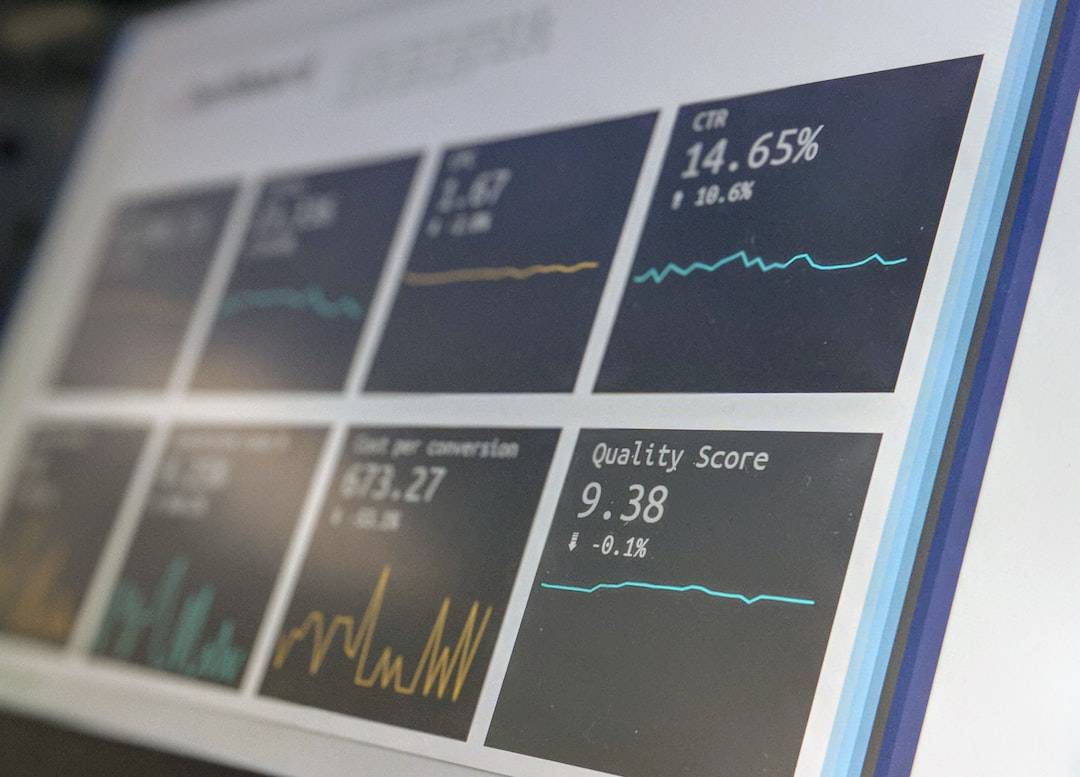In the rapidly evolving landscape of artificial intelligence and machine learning, H2O.ai stands out as a pioneering force. Founded in 2012, H2O.AI has made significant strides in democratizing AI by providing open-source software that enables organizations to harness the power of machine learning without requiring extensive expertise in the field. The platform is designed to be user-friendly, allowing data scientists and business analysts alike to build and deploy machine learning models with ease.
With its robust capabilities, H2O.ai has become a go-to solution for enterprises looking to leverage data-driven insights to enhance their operations. H2O.ai’s flagship product, H2O, is an open-source platform that supports a wide array of machine learning algorithms, including generalized linear models, gradient boosting machines, and deep learning.
Additionally, H2O.ai offers AutoML, a feature that automates the process of training and tuning machine learning models, significantly reducing the time and effort required to achieve optimal results. This combination of accessibility and power positions H2O.ai as a leader in the AI space, particularly for organizations seeking to implement advanced analytics without the need for extensive resources.
Key Takeaways
- H2O.ai is a leading provider of AI and machine learning technology, known for its automated machine learning platform.
- Automated machine learning empowers organizations to quickly and efficiently build and deploy machine learning models without the need for extensive expertise.
- Fraud detection is a critical application of machine learning, helping businesses identify and prevent fraudulent activities.
- H2O.ai offers powerful tools and capabilities for fraud detection, enabling organizations to leverage advanced machine learning techniques for this purpose.
- Using H2O.ai for fraud detection brings benefits such as improved accuracy, faster detection, and reduced false positives, ultimately leading to cost savings and enhanced security.
Automated Machine Learning (AutoML) represents a transformative shift in how organizations approach data science. Traditionally, building machine learning models required a deep understanding of algorithms, feature engineering, and hyperparameter tuning. This complexity often acted as a barrier for many businesses, preventing them from fully capitalizing on their data.
However, with the advent of AutoML, the landscape has changed dramatically. By automating many of the tedious and time-consuming tasks associated with model development, AutoML empowers users to focus on deriving insights and making data-driven decisions. The power of AutoML lies in its ability to streamline the entire machine learning pipeline.
From data preprocessing to model selection and evaluation, AutoML tools can handle these processes with minimal human intervention. This not only accelerates the time-to-market for machine learning solutions but also enhances the accuracy of the models produced. By leveraging advanced algorithms and techniques, AutoML can identify the best-performing models based on the specific characteristics of the dataset at hand.
As a result, organizations can achieve higher levels of performance and efficiency while minimizing the risk of human error.
Understanding Fraud Detection
Fraud detection is a critical concern for businesses across various sectors, including finance, e-commerce, and insurance. The rise of digital transactions has led to an increase in fraudulent activities, making it imperative for organizations to implement robust detection mechanisms. Fraud can take many forms, from credit card fraud and identity theft to insurance fraud and money laundering.
Each type presents unique challenges that require tailored approaches for effective detection. At its core, fraud detection involves identifying patterns and anomalies within large datasets that may indicate fraudulent behavior. Traditional methods often rely on rule-based systems that can be rigid and ineffective in adapting to new fraud tactics.
In contrast, machine learning offers a more dynamic approach by enabling systems to learn from historical data and continuously improve their detection capabilities.
H2O.ai provides a powerful platform for organizations looking to enhance their fraud detection capabilities through machine learning. By utilizing H2O’s AutoML feature, businesses can quickly develop models that are specifically tailored to their unique fraud detection needs. The platform’s ability to handle large datasets allows organizations to analyze historical transaction data comprehensively, uncovering hidden patterns that may indicate fraudulent behavior.
One of the standout features of H2O.ai is its support for various machine learning algorithms, enabling users to experiment with different approaches to find the most effective solution for their specific use case. For instance, organizations can leverage ensemble methods that combine multiple models to improve accuracy or utilize deep learning techniques for more complex datasets. Additionally, H2O.ai’s intuitive interface makes it accessible for users with varying levels of expertise, allowing teams to collaborate effectively on fraud detection initiatives.
The benefits of using H2O.ai for fraud detection are manifold. First and foremost, the platform’s automated capabilities significantly reduce the time required to develop and deploy machine learning models. This rapid deployment allows organizations to respond swiftly to emerging fraud trends and adapt their strategies accordingly.
Moreover, by automating routine tasks such as feature selection and hyperparameter tuning, H2O.ai frees up valuable resources that can be redirected toward more strategic initiatives. Another key advantage is the scalability of H2O.ai’s solutions. As organizations grow and their datasets expand, H2O.ai can seamlessly scale to accommodate increased data volumes without sacrificing performance.
This scalability ensures that businesses can maintain effective fraud detection mechanisms even as they evolve over time. Furthermore, the platform’s ability to integrate with popular data storage solutions and analytics tools enhances its versatility, making it an ideal choice for organizations looking to build a comprehensive fraud detection ecosystem.
Implementing H2O.ai for automated machine learning involves several key steps that organizations must follow to maximize its potential. The first step is data preparation, which includes cleaning and preprocessing the dataset to ensure it is suitable for analysis. This stage is crucial as the quality of the input data directly impacts the performance of the machine learning models developed.
Once the data is prepared, users can leverage H2O’s AutoML functionality to initiate the model training process. The platform automatically selects the best algorithms and hyperparameters based on the dataset’s characteristics, streamlining what would otherwise be a labor-intensive process. After training is complete, users can evaluate model performance using various metrics such as accuracy, precision, recall, and F1 score.
This evaluation phase allows organizations to select the most effective model for deployment in their fraud detection systems.
Numerous organizations have successfully implemented H2O.ai for fraud detection, showcasing its effectiveness across different industries. For instance, a leading financial institution utilized H2O.ai’s AutoML capabilities to enhance its credit card fraud detection system. By analyzing millions of transactions in real-time, the institution was able to identify fraudulent activities with unprecedented accuracy while significantly reducing false positives.
This not only improved customer satisfaction but also saved the organization substantial amounts in potential losses. Another compelling case study comes from an e-commerce company that faced challenges with chargeback fraud. By leveraging H2O.ai’s machine learning algorithms, the company developed a predictive model that analyzed customer behavior patterns and transaction histories.
This model enabled them to flag potentially fraudulent transactions before they were completed, resulting in a dramatic decrease in chargebacks and an increase in overall revenue. These success stories highlight how H2O.ai empowers organizations to tackle complex fraud detection challenges effectively.
In conclusion, H2O.ai represents a significant advancement in the field of automated machine learning and fraud detection. Its user-friendly platform empowers organizations to harness the power of AI without requiring extensive technical expertise. By automating many aspects of model development and providing robust tools for data analysis, H2O.ai enables businesses to respond swiftly to emerging threats while maximizing their operational efficiency.
As fraud continues to evolve in complexity and sophistication, leveraging advanced technologies like H2O.ai will be essential for organizations seeking to protect their assets and maintain customer trust. The case studies presented demonstrate that successful implementation can lead to substantial improvements in fraud detection capabilities across various industries. Ultimately, H2O.ai unlocks new possibilities for organizations looking to harness the full potential of their data through automated machine learning solutions tailored specifically for fraud detection challenges.
Entdecken Sie, wie H2O.ai die Welt des maschinellen Lernens und der prädiktiven Analysen revolutioniert, indem Sie einen Blick auf einen verwandten Artikel werfen. Dieser Artikel bietet Einblicke in die fortschrittlichen Technologien und Anwendungen von H2O.ai, einschließlich automatisiertem maschinellem Lernen und Betrugserkennung. Lesen Sie mehr über die spannenden Entwicklungen und wie sie verschiedene Industrien transformieren, indem Sie diesen Artikel besuchen.
FAQs

What is H2O.ai?
H2O.ai is an open-source platform that provides artificial intelligence (AI) and machine learning solutions for businesses. It offers tools for predictive analytics, automated machine learning, and fraud detection.
What is the H2O.ai platform used for?
The H2O.ai platform is used for various applications, including predictive analytics, machine learning model development, and automated machine learning. It is also used for fraud detection and other data-driven business solutions.
What are the key features of the H2O.ai platform?
The key features of the H2O.ai platform include automated machine learning, model interpretability, and scalability. It also offers tools for data visualization, model deployment, and integration with other data science tools and platforms.
How does H2O.ai enable fraud detection?
H2O.ai enables fraud detection by using machine learning algorithms to analyze patterns and anomalies in data. It can identify fraudulent activities by detecting unusual behavior or deviations from normal patterns, helping businesses prevent financial losses and protect against fraudulent activities.
Is H2O.ai suitable for businesses of all sizes?
Yes, H2O.ai is suitable for businesses of all sizes, from small startups to large enterprises. Its scalable and customizable solutions can be tailored to meet the specific needs and requirements of different businesses, regardless of their size or industry.











Leave a Reply